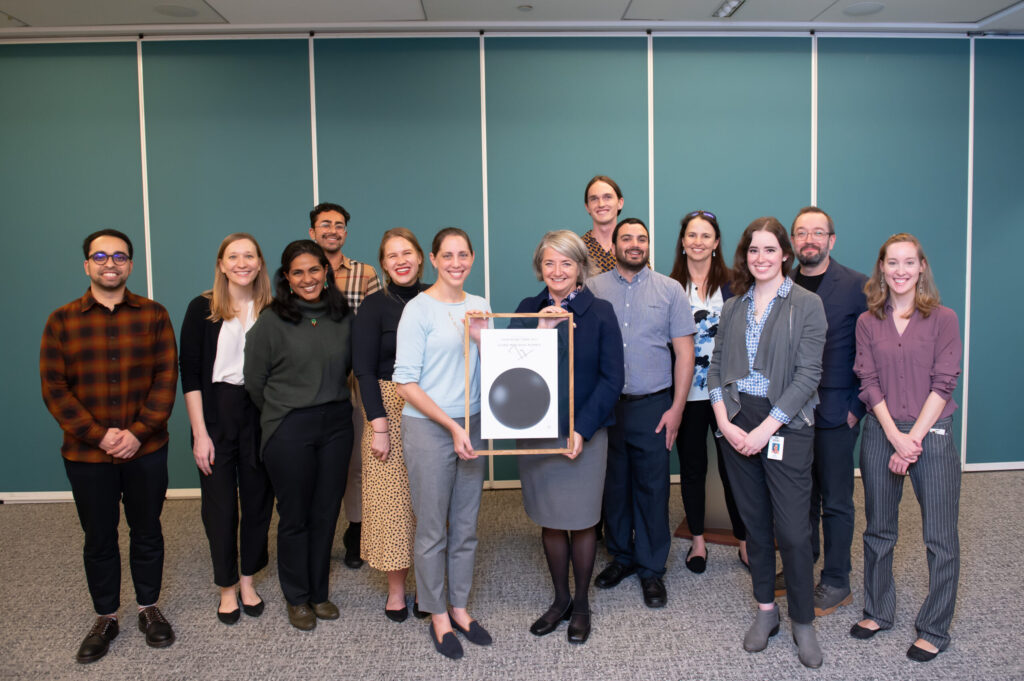Read in
The Global Mangrove Alliance team receives the Food Planet Prize Diploma from the Swedish Ambassador in the U
The Curt Bergfors Foundation is humbled to award the 2022 Food Planet Prize to anti-food loss champion ColdHubs and mangrove advocate Global Mangrove Alliance. Each winner receives $2 million, the world’s biggest award in the environmental and food sectors.
The Foundation admires both winners for putting the livelihoods of those who produce food first in the fight against global warming, biodiversity loss, and more. While ColdHubs increases smallholder farmers’ income to cut greenhouse gas-emitting food spoilage, the Global Mangrove Alliance creates economic avenues for fishers to protect vital ecosystems.
ColdHubs
Every year, smallholder farmers in Africa, Latin America, and Southeast Asia lose a quarter of their income to spoilage. Solving this massive problem weaves in environmental and human benefits. By extending the shelf life of produce tenfold and cutting post-harvest loss by 80%, ColdHubs’ cool rooms have ripple effects on food safety, poverty reduction, clean energy, gender equality, and then some. 12 of the 17 Sustainable Development Goals, to be precise.
A vendor who can preserve its produce for 21 days instead of 2 will sell a bigger share of its stock, which alleviates poverty and food insecurity. The solar panels that power the Hubs, in combination with a pay-as-you-store model, keep the cost so low that even the very poorest farmers can afford the service. All this facilitates large-scale adoption. Launched in 2015, ColdHubs has built 72 solar-powered cold rooms across its native Nigeria – 54 of which are self-operated in outdoor markets – as well as two refrigerated trucks. It’s now gearing up to launch 40 more hubs, some of which will serve farm clusters in remote areas of the country, and soon enter Benin, Rwanda, Kenya, and more.
Global Mangrove Alliance
50% of the world’s mangroves have disappeared in 50 years, with devastating impacts on food sovereignty and climate change resilience. Mangroves act as natural buffers against storms and floods. They are also biodiversity hotspots that sustain local economies and global seafood supplies since they function as nurseries for fish. The Global Mangrove Alliance aims to reverse mangrove loss by combining restoration science and community engagement.
Its five coordinating NGOs – Conservation International, Wetlands International, Nature Conservancy, International Union for the Conservation of Nature, and World Wildlife Fund – leverage their resources to lift up local solutions. They help cooperatives obtain fishing permits or access preferential markets. They also support communities in gaining protected area status. Which, in turn, allows the latter to continue practicing sustainable fishing. Local best practices are then shared across five continents, including mangrove-rich countries such as Indonesia and México.
The two winners were selected from a list of ten finalistsrepresenting all parts of the food system. The culmination of a thorough process that starts with hundreds of nominees, which the Food Planet Prize team vets and assesses before subjecting the highest-ranking candidates to external evaluation and presenting them to an international jury of food system and environmental experts who elect the winners.
About the Jury
The Food Planet Prize has enlisted ten jurors on four continents to ensure the diversity of views needed to evaluate a broad range of initiatives. Together, they cover the entire food system, from farmers and entrepreneurs to civil servants and researchers. Johan Rockström, Director of the Potsdam Institute for Climate Impact Research, and Magnus Nilsson, Director-General of the Food Planet Prize co-chair the Jury.
About the Food Planet Prize
The Food Planet Prize awards initiatives that solve the dilemma of feeding a growing world population while saving a planet in peril. Each year, two winners receive $2 million each to rapidly scale up their initiatives. The Prize welcomes solutions from all over the world and any field as long as they can help humanity shift to sustainable food systems within this decade. Unlike traditional awards, anyone can apply or nominate—all year round.



